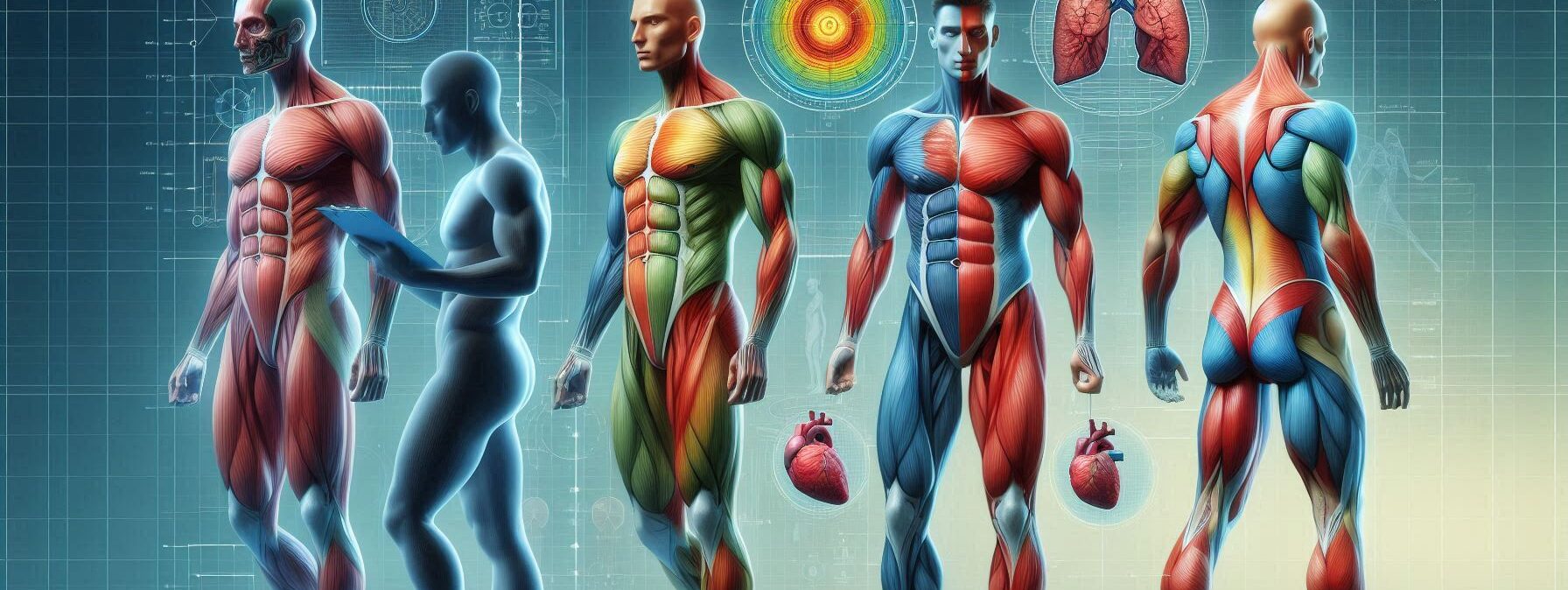Let’s get one thing straight: when it comes to fitness, the scale can be a real jerk. You step on it, and it seems to mock you with its number, as if it has some personal vendetta against your breakfast burrito.
But what if I told you that there’s more to fitness than just that dreaded number? Enter body composition—the secret superhero of the fitness world!
So, grab a protein shake (or donut, no judgment here) and let’s dive into this topic.
Top Takeaways and Key Concepts
Focus on body composition: Track fat, muscle, water, and bone percentages instead of just weight.
Build lean muscle mass: Incorporate strength training to burn more calories even at rest.
Prioritize healthy fats: Include sources like avocados and nuts while avoiding trans fats.
Stay properly hydrated: Drink enough water to support metabolism, digestion, and appetite control.
Set realistic, composition-based goals: Measure progress through fat-to-muscle ratios, not only scale weight.
Summary of This Article
The article emphasizes that fitness success is better measured by body composition rather than scale weight alone. Understanding the balance of fat, muscle, water, and bone allows for more accurate health assessments. Building lean muscle increases calorie burn, while including healthy fats supports essential bodily functions. Proper hydration aids metabolism and controls cravings, enhancing overall fitness. Setting realistic goals based on body composition, such as improving fat-to-muscle ratios, ensures sustainable progress and encourages a healthier, more effective approach to weight management.
1. What Is Body Composition Anyway?

So, what exactly is body composition? It sounds like something you'd hear at a science fair where kids are trying to impress judges by mixing strange chemicals together.
In reality, body composition refers to the percentages of fat, bone, water, and muscle in your body. Think of it like making a smoothie; too much fruit might make it sweet but not very nutritious!
Interestingly enough, two people can weigh the same but look completely different because their body compositions vary.
For instance, I once had a friend who was built like a linebacker but weighed less than I did—thanks to his impressive collection of muscles.
Meanwhile, I was over here with my “fluffy” physique and wondering why my jeans were feeling tighter after pizza night.
Understanding body composition helps us set realistic goals for our health journey. Instead of fixating on losing pounds—which can sometimes feel like chasing a runaway dog—we can focus on building lean muscle while reducing fat. Speaking of which…
2. The Importance of Lean Muscle Mass
Now let’s talk about lean muscle mass—this is where the magic happens! Building lean muscle is crucial because muscles burn more calories at rest compared to fat tissue.
That means you could be lounging on your couch watching cat videos while still burning calories (which sounds like my dream job).
By the way, strength training isn’t just for those folks who grunt loudly at the gym or seem to have an endless supply of protein powder in their kitchen cabinets—it’s for everyone!
Even light weights or resistance bands can help increase your muscle mass without turning you into The Hulk overnight.
And honestly, building muscle doesn’t mean we have to give up our favorite snacks either! We can still enjoy life while working toward our fitness goals—and trust me; there’s nothing wrong with having cake occasionally… as long as it's not every day!
3. Fat: The Good, The Bad, and The Ugly
Ah yes—fat! A word that sends shivers down many spines but is often misunderstood. Not all fats are created equal; some are essential for our bodies’ functions while others should be avoided like that last piece of fruitcake from Christmas (you know the one).
Healthy fats found in foods such as avocados or nuts play important roles in hormone production and nutrient absorption—so don’t shy away from them entirely!
However, trans fats? Those guys are like that annoying relative who shows up uninvited—they’re best kept at arm's length.
Interestingly enough, measuring your body fat percentage provides insights into how healthy you really are beyond just looking at weight alone.
It can help identify areas where improvement is needed—like maybe laying off those late-night pizza runs (but only if they’re regular pizza; deep-dish is always acceptable).
4. Hydration: More Than Just Water Weight
Let’s take a moment to chat about hydration because believe it or not; water plays an essential role in body composition too!
Staying hydrated helps regulate metabolism and supports overall bodily functions—a bit like oiling gears in an old car engine (not that I’m comparing ourselves to cars… well maybe some days).
You’ve probably heard people say they “gain weight” when they drink more water—but that's simply not true! Water weight fluctuates based on various factors like sodium intake or hormonal changes—not because you suddenly transformed into a balloon animal.
Speaking of which… drinking enough water also aids digestion and keeps cravings at bay—because nobody wants snack attacks fueled by dehydration masquerading as hunger pangs!
5. Setting Realistic Goals Based on Body Composition
Now that we understand what body composition entails let’s discuss setting realistic goals around it rather than obsessing over numbers on scales!
Instead of aiming for drastic weight loss within weeks (a plan destined for failure), consider focusing on smaller milestones related specifically to improving your ratios between fat/muscle levels.
For example: instead of saying “I want to lose ten pounds,” try saying “I want my waist-to-hip ratio lower by three inches.” This shift allows progress measurement through tangible achievements rather than mere fluctuations in scale readings!
All things considered—you’ll find yourself feeling accomplished without sacrificing enjoyment along the way!
Suggested Resources:
The Role of Body Composition in Health
https://www.ncbi.nlm.nih.gov/pmc/articles/PMC6465056/
Body Composition Basics
https://www.healthline.com/nutrition/body-composition-basics
Understanding Body Fat Percentage
https://www.bodybuilding.com/content/understanding-body-fat-percentage.html
Frequently Asked Questions
What does body composition mean?
Body composition refers to the percentages of fat, muscle, water, and bone in your body. It gives a clearer picture of fitness than weight alone.
Why is muscle mass important for fitness?
Lean muscle burns more calories at rest than fat, helping improve metabolism and support long-term fitness goals.
Are all types of body fat the same?
No. Healthy fats from foods like nuts and avocados support vital functions, while trans fats should be avoided due to health risks.
How does hydration affect body composition?
Proper hydration supports digestion, metabolism, and appetite control, helping maintain a healthier balance between fat and muscle.
Can two people weigh the same but have different compositions?
Yes. Individuals with identical scale weights can look and feel different based on their muscle-to-fat ratios.
How should I set goals based on body composition?
Focus on improving fat-to-muscle ratios, strength levels, and measurements rather than relying solely on scale numbers.
How can I improve my body composition?
Combine strength training, healthy fats, hydration, and balanced eating to build muscle and reduce excess body fat.

Kevin Collier is a dedicated health enthusiast and writer for FatFAQ.com, where he shares his expertise on weight loss and maintaining a healthy lifestyle. With a focus on practical tips and evidence-based strategies, Kevin aims to inspire readers to achieve their health goals through informed choices. His engaging articles cover nutrition, exercise, and holistic wellness, providing valuable resources for anyone looking to improve their well-being. Passionate about helping others transform their lives, Kevin advocates for sustainable habits that promote lasting health and vitality.




